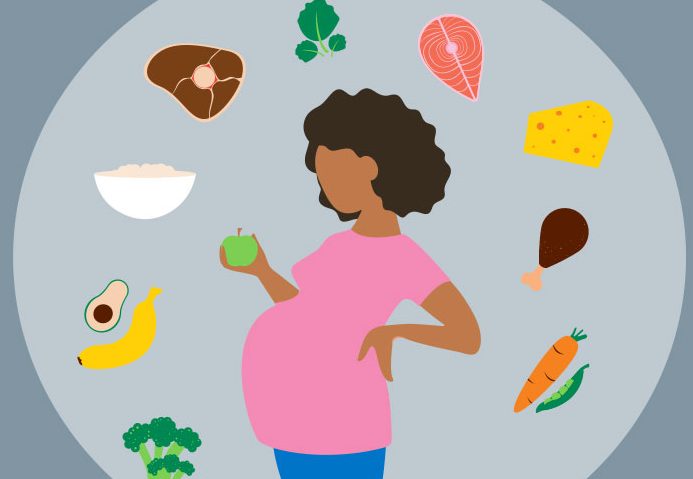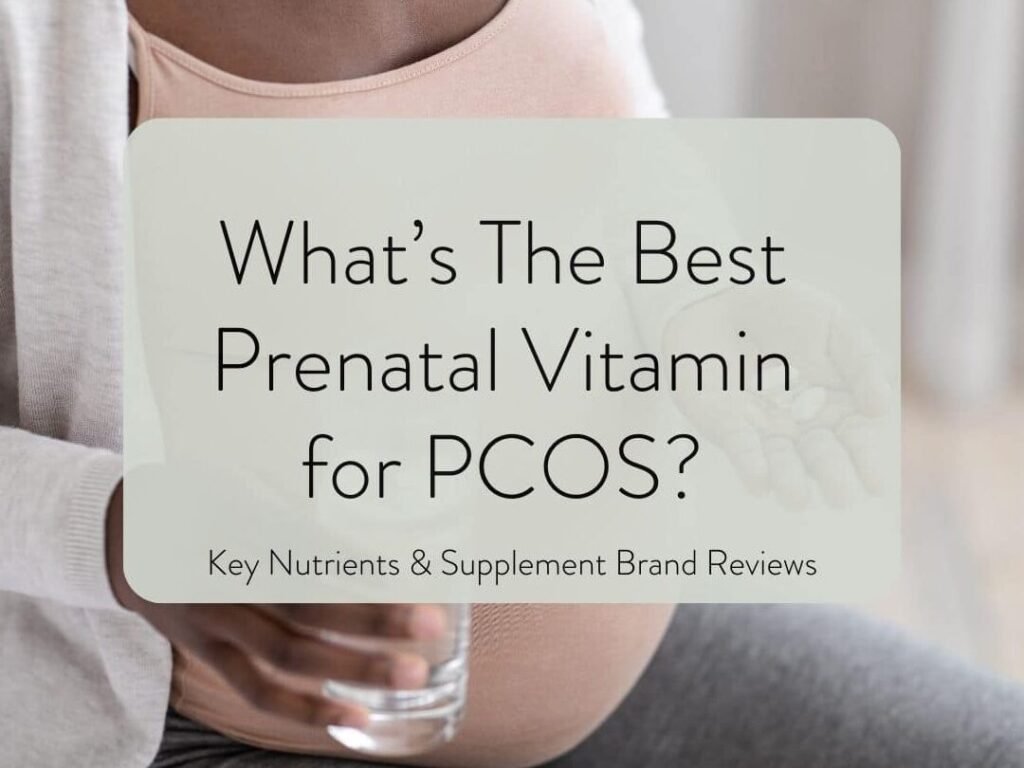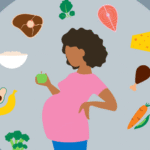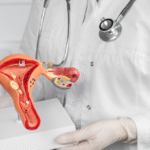Now Reading: Vaccines, Tests, And Screenings to Get Before Pregnancy
-
01
Vaccines, Tests, And Screenings to Get Before Pregnancy
Vaccines, Tests, And Screenings to Get Before Pregnancy
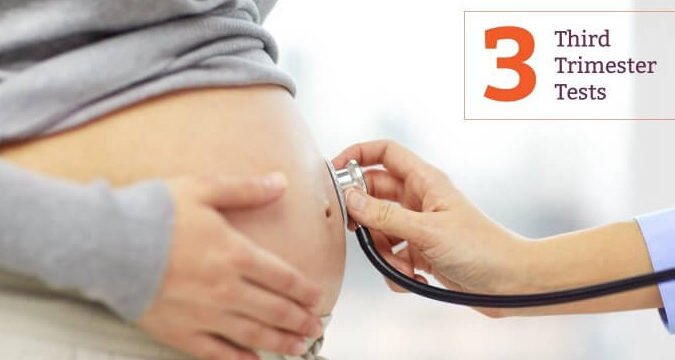
Preparing for pregnancy involves more than just excitement. It’s important to focus on health and safety.
Ensuring a healthy start requires vaccines, tests, and screenings. These steps help protect both mother and baby. Understanding what to get before pregnancy can be crucial. Pregnancy is a significant journey, and being well-prepared is key. Before embarking on this life-changing path, it’s essential to prioritize health.
Vaccines, tests, and screenings offer valuable insights. They ensure you are ready for the changes ahead. Immunizations guard against diseases that may affect pregnancy. Tests reveal any underlying health issues. Screenings monitor your body’s readiness. This proactive approach can prevent complications. It can also promote a smoother pregnancy experience. Knowing what to expect and prepare for can make a real difference. It’s about creating the safest environment for your future child.
Importance Of Pre-pregnancy Health
Ensuring health before pregnancy is crucial. Vaccines, tests, and screenings help prepare the body. They prevent complications and ensure a safe journey.
The Importance of Pre-Pregnancy Health cannot be overstated. Preparing your body for pregnancy is a vital step in ensuring a healthy journey for both you and your baby. By focusing on your health before conception, you lay the groundwork for a healthier pregnancy and birth experience.
Why Pre-pregnancy Care Matters
Pre-pregnancy care is your first step toward a healthy pregnancy. It involves taking proactive measures to address potential health issues before they arise. For instance, did you know that certain vaccines can protect both you and your future baby from preventable diseases?
Consider visiting your healthcare provider to discuss necessary tests and screenings. This visit is crucial because it can identify conditions that might affect your pregnancy. Taking action now can prevent complications later.
Impact On Mother And Baby
Your health directly impacts your baby’s well-being. A well-prepared body can reduce risks of complications such as gestational diabetes and pre-eclampsia. You are investing in a healthier future for your child by taking these steps now.
A friend of mine, Sarah, shared her experience of how pre-pregnancy care made a difference. She discovered a nutrient deficiency during her pre-pregnancy check-up. With a simple dietary change, Sarah improved her health and had a smooth pregnancy.
Think about the peace of mind you gain by knowing you’ve done everything possible for a healthy pregnancy. Isn’t it worth the effort to ensure the best start for your little one?
Are there specific health concerns you’re worried about before pregnancy? Addressing them now is far easier than dealing with them later. Take charge of your health today, and set the stage for a beautiful journey ahead.
Essential Vaccines Before Pregnancy
Preparing for pregnancy involves important health steps. Getting essential vaccines helps protect both mother and baby. Tests and screenings ensure a healthy start.
Preparing for pregnancy involves more than just lifestyle adjustments; it also means ensuring you’re medically ready. Essential vaccines can protect you and your future child from serious health risks. Before you embark on this beautiful journey, getting up to date with certain vaccines is crucial.
MMR Vaccine
The MMR vaccine protects against measles, mumps, and rubella. These infections can cause severe complications during pregnancy, including miscarriage or congenital disabilities.
Consider Sarah’s story: she planned her pregnancy meticulously but overlooked her MMR vaccination. When she contracted rubella, it led to a complicated pregnancy. Don’t let this happen to you. A simple vaccine can prevent such risks.
Ensure your MMR vaccination is current, especially if you’re unsure about your childhood immunizations. It’s a proactive step that can shield your future baby from harm.
Hepatitis B Vaccine
Hepatitis B is a viral infection that can affect your liver and pose risks during pregnancy. The vaccine is crucial for safeguarding both your health and your baby’s.
Picture this: Lisa was unaware of her Hepatitis B status before pregnancy. Her baby was born healthy, but she faced long-term health challenges. The Hepatitis B vaccine could have changed her story.
Getting vaccinated not only protects you but also prevents transmission to your newborn. If you’re planning a pregnancy, check your Hepatitis B vaccine status. It’s a small step with a significant impact.
Have you considered the health legacy you’ll pass on to your child? Vaccines like MMR and Hepatitis B are essential steps in creating a safe environment for your baby. Are you ready to take action to protect your future family?
Vaccines To Avoid During Pregnancy
Pregnancy is a special time. Expectant mothers need to be cautious about vaccines. Not all vaccines are safe during pregnancy. Some vaccines can harm the developing baby. It’s crucial to know which vaccines to avoid. This helps protect both the mother and the child.
Live Vaccines
Live vaccines contain weakened viruses or bacteria. They help build immunity. But they pose a risk during pregnancy. These vaccines can potentially infect the unborn baby. The body’s immune response can affect fetal development. Common live vaccines include measles, mumps, rubella (MMR), and varicella. Pregnant women should steer clear of these.
Timing Considerations
Timing is vital when planning for pregnancy. Get necessary vaccines before conceiving. This includes live vaccines. Ensure at least a month gap after live vaccines. This reduces risks to the baby. Discuss with a healthcare provider. They can guide on safe vaccine timelines.
:max_bytes(150000):strip_icc()/Parents-Pre-Pregnancy-Tests-9cc14a02e6444e258d5cd9f6b362be1d.jpg)
Crucial Health Screenings
Planning for a baby can be one of the most exciting times of your life. But before you dive into the world of baby names and nursery themes, there’s an important step you need to take: crucial health screenings. These screenings ensure your body is in the best possible shape to support a healthy pregnancy. Let’s explore some key health checks that can pave the way for a smooth journey ahead.
Blood Pressure Check
Your heart does a lot of work during pregnancy. Monitoring your blood pressure is essential. High blood pressure can lead to complications for both you and your baby. It might be something you haven’t thought much about, especially if you’ve always felt healthy. But pregnancy changes your body’s dynamics.
Consider this: during a routine check, your doctor might discover a slight elevation in your blood pressure. It’s a signal to make lifestyle adjustments. Eating healthier, reducing stress, or even medication could be recommended. These changes can make a big difference in your pregnancy experience.
Have you checked your blood pressure lately? It’s a simple test but holds significant importance for your future family.
Diabetes Screening
Diabetes can sneak up on you without warning. Screening for diabetes before pregnancy is crucial to prevent gestational diabetes. It affects many women who never had diabetes before. Imagine learning about your blood sugar levels early on. It gives you the power to manage your diet and lifestyle effectively.
If you’ve got a sweet tooth, this screening might prompt you to rethink your sugar intake. Cutting back on sugary snacks can be tough, but the benefits for you and your baby are worth it. What small changes could you make today for a healthier tomorrow?
Taking charge of your health means a safer pregnancy journey. Screenings are more than just tests; they are your allies in ensuring a healthy start for your baby.
Importance Of Genetic Testing
Genetic testing plays a vital role before pregnancy. It helps identify potential genetic risks that might affect the baby. Understanding these risks can guide couples in making informed decisions. Doctors recommend genetic testing for a better understanding of hereditary conditions.
Carrier Screening
Carrier screening checks if parents carry genes for certain disorders. These disorders might not show symptoms in carriers. If both parents carry the same gene, the baby could inherit the disorder. Screening for cystic fibrosis and sickle cell anemia is common. Early detection can prepare parents for potential outcomes.
Family History Evaluation
Family history evaluation examines genetic conditions in relatives. It identifies inherited conditions like heart disease or diabetes. Knowing your family’s medical history helps in risk assessment. Doctors use this information to recommend specific tests. It ensures personalized care tailored to family health patterns.
Infectious Disease Testing
Before pregnancy, important vaccines, tests, and screenings help ensure a healthy start for both mother and baby. These precautions identify potential risks and boost immunity, safeguarding against infectious diseases. Early preparation leads to better health outcomes for the entire family.
Preparing for pregnancy is an exciting journey filled with anticipation and careful planning. One crucial step is ensuring that you’re in optimal health, which involves getting the right vaccines, tests, and screenings. Among these, infectious disease testing plays a vital role. It helps protect both you and your future baby from potential health risks. By addressing infectious diseases early, you can pave the way for a healthier pregnancy and peace of mind.
STI Screening
Sexually transmitted infections (STIs) can have serious implications for both you and your future child. Some STIs may affect your fertility or pose risks during pregnancy. Testing for STIs like chlamydia, gonorrhea, and syphilis is essential. Early detection allows for treatment, reducing the risk of complications.
Have you considered how an undiagnosed STI could impact your pregnancy journey? By taking proactive steps, you ensure a healthier start for your baby.
Rubella Immunity Test
Rubella, also known as German measles, can cause severe birth defects if contracted during pregnancy. Knowing your immunity status before conceiving is crucial. A simple blood test can determine if you are immune to rubella.
If you’re not immune, a vaccine is available to protect you and your future child. Have you checked your immunity status recently? Taking action now could prevent potential complications later.
These tests are more than just routine—they are foundational steps in safeguarding your health and that of your future baby. By prioritizing infectious disease testing, you’re not only preparing for a healthy pregnancy but also investing in a brighter future for your family.
Nutritional Assessments
Preparing for pregnancy includes important health checks. Vaccines, tests, and screenings ensure a healthy start for both mother and baby. Nutritional assessments help identify any deficiencies needing attention before conception.
Preparing for pregnancy is an exciting journey, filled with anticipation and hope. But before you embark on this path, understanding the nutritional assessments that can support a healthy pregnancy is crucial. These assessments provide insights into what your body needs to nurture a growing baby. Let’s dive into two key components: folic acid and iron levels, which play a significant role in your prenatal health.
Folic Acid Importance
Folic acid is like the superhero of nutrients during pregnancy. It’s essential for preventing neural tube defects, which affect the brain and spine of your baby. Including foods rich in folic acid, such as leafy greens, beans, and fortified cereals, can significantly impact your baby’s health.
You might wonder how much folic acid you need. The general recommendation is 400 micrograms daily, starting at least one month before conception and continuing through the first trimester. Have you ever thought about how a simple vitamin can make such a difference?
Iron Levels Check
Iron is crucial for making hemoglobin, the protein in red blood cells that carries oxygen throughout your body. During pregnancy, your blood volume increases, so you’ll need more iron to support both you and your baby. Without enough iron, you might feel tired and weak, which isn’t ideal when you’re preparing for pregnancy.
Checking your iron levels is a simple blood test that can tell you if you need to add more iron-rich foods to your diet. Think lean meats, spinach, and lentils. Have you considered how boosting your iron intake could energize you for the exciting days ahead?
Nutritional assessments aren’t just about numbers; they’re about building a foundation for a healthy pregnancy. When you understand what your body needs, you empower yourself to make informed choices. What steps will you take to ensure your nutritional health before pregnancy?
Lifestyle Adjustments
Preparing for pregnancy involves vital health steps. Essential vaccines, tests, and screenings ensure a healthy start. Consult your healthcare provider for personalized advice.
Preparing for pregnancy is an exciting journey, and making lifestyle adjustments is a crucial part of ensuring your body is ready for this new chapter. Embracing healthier habits can enhance your fertility and pave the way for a smoother pregnancy. Whether it’s modifying your diet or ramping up your exercise routine, every small change counts. Let’s delve into some practical adjustments you can make right now.
Dietary Changes
Your diet plays a significant role in your pre-pregnancy health. It’s not just about eating more vegetables or cutting out sugar; it’s about building a balanced diet that supports your body.
Consider adding foods rich in folic acid like leafy greens, beans, and citrus fruits. Folic acid is vital for fetal development and can prevent certain birth defects.
Also, think about reducing your intake of processed foods. They often contain additives that aren’t beneficial for your body, especially when you’re trying to conceive.
Are there local markets you can explore for fresh produce? Sometimes, a change of scenery can inspire healthier choices.
Exercise Recommendations
Exercise doesn’t have to be daunting, especially when you’re gearing up for pregnancy. It’s about finding activities that you enjoy and can sustain.
Think about incorporating regular walks into your daily routine. Walking is gentle on your body but effective in keeping you active. Plus, it’s a great way to clear your mind and reduce stress.
Strength training can also be beneficial. Simple exercises using your own body weight can help build endurance and muscle tone. This prepares your body for the physical demands of pregnancy.
Do you have a favorite workout playlist that gets you moving? Music can transform exercise from a chore to a joy.
Making these lifestyle adjustments can feel overwhelming, but remember, it’s all about small, sustainable changes. What one change will you make today to prepare for your pregnancy journey?
Consulting Healthcare Professionals
When planning for a baby, consulting healthcare professionals is crucial. They provide guidance on necessary vaccines, tests, and screenings before pregnancy. Establishing a relationship with a healthcare provider ensures you are supported throughout your journey.
Choosing A Healthcare Provider
Selecting the right healthcare provider is a personal decision. Consider factors like experience, location, and your comfort level with them. Some women prefer a family doctor, while others choose an obstetrician or midwife.
Ask friends or family for recommendations. A trusted referral can provide peace of mind. You might also want to read online reviews to get a broader perspective.
Once you have a few options, schedule consultations. This gives you a chance to ask questions and assess their communication style. Feeling heard and respected is essential during this process.
Regular Check-ups Importance
Regular check-ups are more than just routine visits. They play a vital role in monitoring your health and addressing concerns. These appointments allow for early detection of potential issues, ensuring a healthier pregnancy journey.
During check-ups, your healthcare provider will discuss necessary vaccines, like rubella and chickenpox. They will also recommend screenings for conditions such as diabetes and hypertension. These preventive measures help safeguard both your health and that of your future baby.
Have you ever skipped a check-up only to regret it later? Regular visits can prevent such scenarios. They provide an opportunity for open dialogue with your healthcare provider, allowing you to voice any worries or questions you might have.
Ultimately, these consultations are about empowering you with knowledge and confidence. They prepare you for a healthy pregnancy and beyond. So, make those appointments a priority; your future self will thank you.
Frequently Asked Questions
What Vaccinations Should I Get Before Getting Pregnant?
Get vaccinated for rubella, chickenpox, hepatitis B, and influenza before pregnancy. Consult your doctor for personalized advice.
What Tests Need To Be Done Before Pregnancy?
Essential tests before pregnancy include blood tests, genetic screening, STI tests, and a complete health check-up. Consult your doctor for personalized advice and ensure vaccinations are up-to-date. Maintain a healthy lifestyle and discuss any medications or supplements you are taking.
Pre-pregnancy planning helps ensure a healthy pregnancy journey.
What Vaccinations Do I Need Before Getting Pregnant?
Ensure you’re up-to-date with MMR, varicella, Tdap, and flu vaccines. Check for hepatitis B immunity. Consult your doctor.
What Vaccines Are Recommended Before During Pregnancy?
Pregnant women should receive the flu and Tdap vaccines. The flu vaccine protects against influenza, while Tdap guards against tetanus, diphtheria, and pertussis. These vaccines protect both the mother and the baby. Always consult your healthcare provider for personalized advice on vaccinations during pregnancy.
Conclusion
Preparing for pregnancy involves important health steps. Vaccines, tests, and screenings are key. They protect both you and your future baby. Check with your doctor for guidance. Discuss necessary vaccines and tests. Early preparation leads to healthier outcomes. Knowledge empowers your pregnancy journey.
Stay informed, stay healthy. Make informed decisions for your family’s future. Your health impacts your baby’s start in life. Prioritize these steps today. A healthy start begins now. Ready, set, go!







